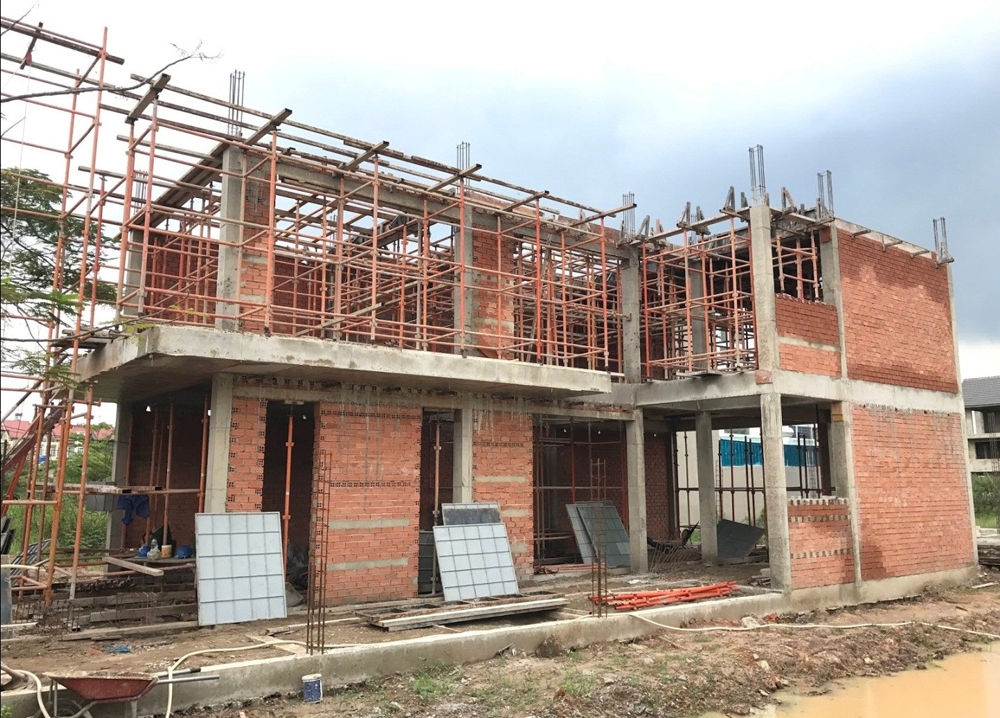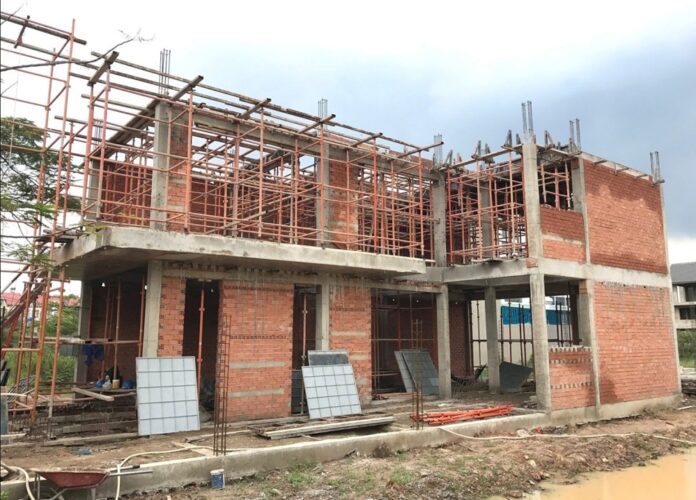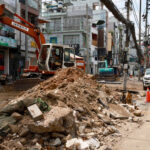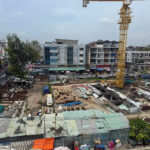In a recent development, Ho Chi Minh City’s Chairman, Mr. Nguyen Van Duoc, announced that the city is considering allowing citizens to register for construction instead of obtaining permits in areas with clear planning.
The city’s leadership aims to reduce red tape in the construction sector, making it easier for residents. Hence, in areas with well-defined planning, established alley guidelines, and specific architectural regulations in the city’s management regime, citizens will no longer need to apply for construction permits. Instead, they will only need to register their construction plans with local authorities.
This initiative follows the Prime Minister’s directive to simplify procedures and reduce processing times while maintaining urban management and architectural order. The Ho Chi Minh City People’s Committee has tasked the Department of Construction with providing specific guidance by June, expediting the policy’s implementation.
Previously, Dr. Pham Viet Thuan, Director of the Institute of Economics, Resources, and Environment, supported the idea of allowing citizens to register instead of seeking permits. He believed that this would benefit the people and align with administrative reform efforts while retaining state management and urban architectural control. According to him, the new regulation does not imply lax management, and any violations of the registered construction content will still be subject to existing regulations on construction order.
According to the Law on Construction, the permit issuance time depends on the type of project. For individual houses, the permit is issued within 15 days from the receipt of valid dossiers, while for other projects, it takes 20 working days.
Experts argue that eliminating construction permits is necessary to eradicate the “permission” culture and spare citizens and businesses unnecessary expenses. The managing agency only needs to refer to the detailed planning of 1/500 for each project for post-inspection and monitoring.
Currently, to build a house, citizens must hire a design unit to create drawings, prepare dossiers, obtain planning confirmation, pay fees, and wait for the competent agency to evaluate and grant permission. The total cost of obtaining a construction permit can reach tens of millions of dong, not including other unnamed expenses for expedited processing.
These inconsistencies have led to situations where citizens, when building houses, have to rely on “intermediaries” for construction permits, sometimes even building first and then applying for permission later, creating a vicious cycle of hassles and generating negative consequences and corruption.

By eliminating construction permits, government agencies can focus on post-construction inspections as an effective “checkpoint” to ensure construction order. According to current regulations, if unauthorized or non-compliant construction is detected during the monitoring of a construction project, the following actions will be taken:
– If an unauthorized or non-compliant construction is detected during the construction process, the construction must be halted immediately.
– For violations involving construction on land that does not conform to the planning regulations, fines must be imposed, and the landowner must go through the necessary procedures to obtain permission from the relevant agency (if no permit has been issued) or request an adjustment to the permit (if the construction deviates from the permitted design).
After obtaining the permit or adjusting the permit, the landowner can resume construction according to the approved design. If the violation involves a completed structure at the time of detection, fines must be paid, and the structure must be demolished.
Therefore, when eliminating construction permits, government agencies can simply wait for the completion of the structure and then conduct a final inspection during the completion phase, effectively acting as a post-construction checkpoint.
If the completed structure deviates from the registered specifications, the authorities can request the landowner to make corrections and remedy the non-compliant areas. If the landowner makes the necessary adjustments, the authorities will confirm and approve the completion, allowing for the issuance of the house ownership certificate. However, if the structure violates regulations by adding floors or failing to meet safety standards, posing a threat to neighboring structures, immediate demolition will be required.
By removing the permit requirement and enforcing strict post-construction inspections and penalties for violations, citizens will take responsibility for their constructions. They will have to research the planning and regulations themselves and will likely seek professional design and construction services to ensure compliance, reducing the potential for errors or violations.
Eliminating construction permits also increases citizens’ autonomy and responsibility in construction, aligning with the upcoming organizational streamlining and simplification measures.
According to the coordination regulations for construction order management in Ho Chi Minh City, the construction inspection force is responsible for monitoring, inspecting, detecting, and handling violations in permitted constructions. However, with the upcoming organizational changes, this specialized construction inspection force will no longer exist.
The People’s Committee at the commune level, which is responsible for comprehensive construction management in the locality, may not have sufficient personnel to regularly monitor and inspect ongoing constructions. Therefore, allowing citizens to self-register and build, with inspections and handling of violations occurring at the final stage, is more efficient and saves time and manpower for the apparatus.
The Metro No. 2 Project in Ho Chi Minh City: Will It Miss Its Construction Deadline?
With bureaucratic delays, ODA funds expired and had to be replaced with domestic public investment capital.
The Ultimate Guide to LUMIÈRE Riverside: Unveiling the Secrets Behind its Ever-Growing Value
With a staggering 75% increase in apartment prices since its launch in 2020, as evidenced by historical data from Batdongsan.com.vn, LUMIÈRE riverside has proven to be a resounding success. This impressive price appreciation serves as a testament to the allure and desirability of the LUMIÈRE Series, a prestigious brand of residential developments by Masterise Homes.
The City of Ho Chi Minh: Economy Booms, FDI Surges, and Investment Confidence Restored in the First Five Months
Amidst a tapestry of challenges, Ho Chi Minh City’s economy in the first five months of 2025 displayed promising resilience. Foreign direct investment (FDI) inflows reached an impressive $1.8 billion, reflecting an 87.5% surge compared to the same period last year. This, coupled with stable macroeconomic indicators and a gradual recovery in investor confidence, paints a picture of enduring economic vitality for the city.
The Vice Chairman of Ho Chi Minh City People’s Committee, Bui Xuan Cuong, Criticizes Two Departments.
Vice Chairman of Ho Chi Minh City People’s Committee, Bui Xuan Cuong, has issued a reprimand to two departments for their delay in processing procedures for a real estate project in District 8. The rebuke highlights the importance of timely administrative processes and efficient collaboration between government entities.
Introducing Blanca City, Vung Tau: The Oceanfront White City
In June 2025, Sun Property, a proud member of the Sun Group conglomerate, unveiled Blanca City – an exquisite oceanfront metropolis in Vung Tau. This pioneering seaside development sets a new standard with its “All-in-One” concept, offering a seamless blend of residential, recreational, and entertainment opportunities within an affluent lifestyle space. The highlight of this project is the expansive 19-hectare Sun World Water Park, a versatile attraction that elevates the experience of residents and visitors alike.





















